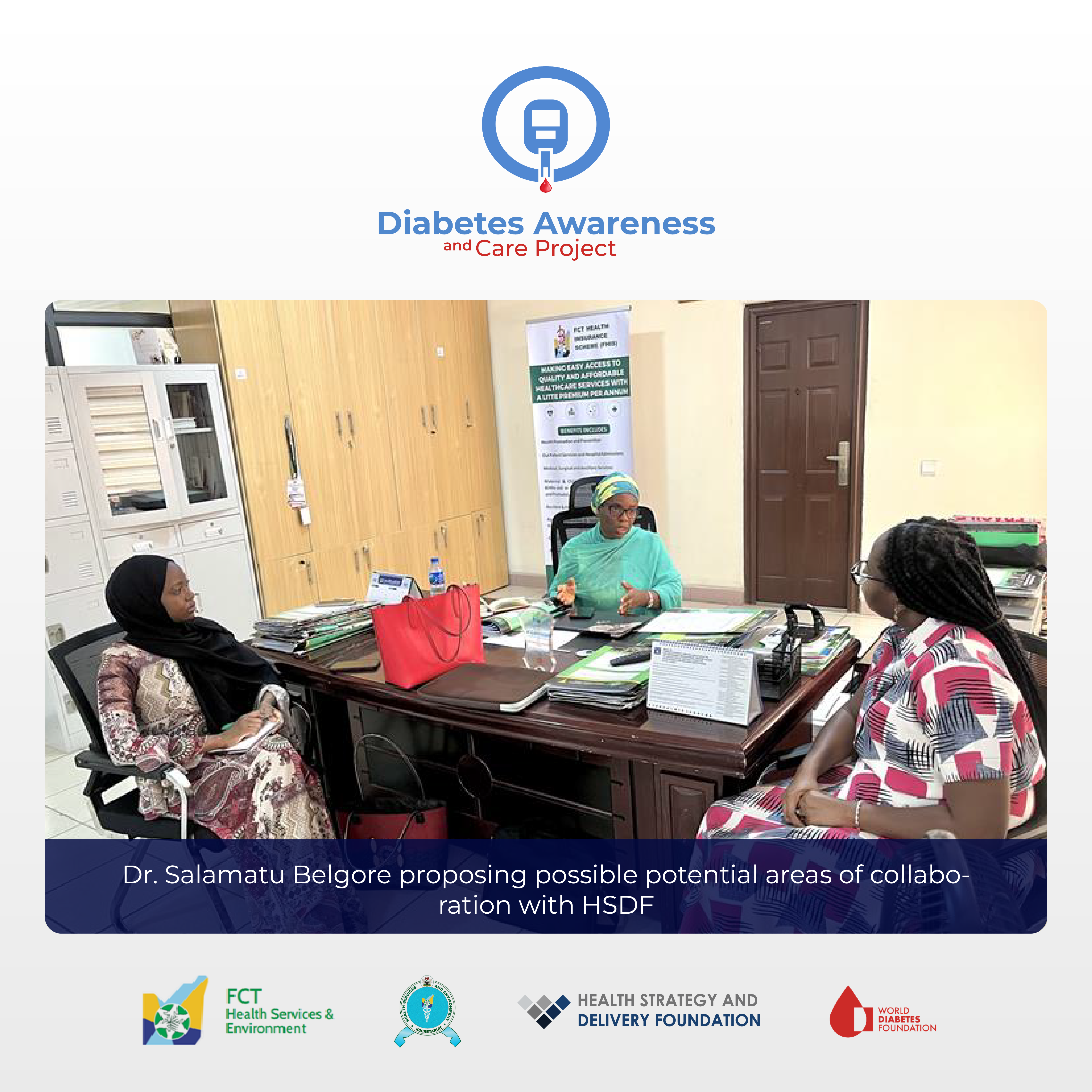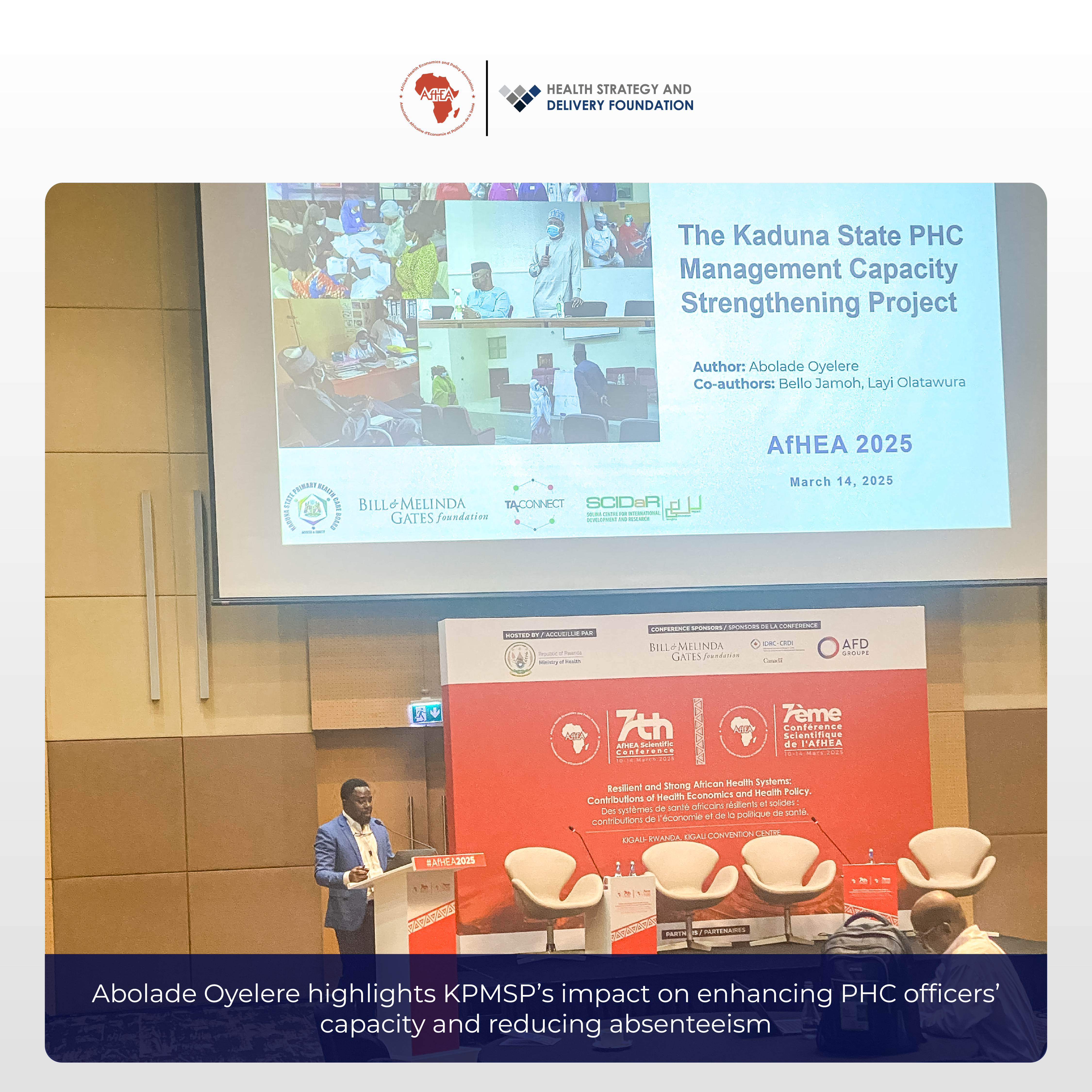HSDF and Partners Facilitate Training of Kaduna State’s Health Sector Monitoring and Evaluation on Scorecard Development
Health Strategy and Delivery Foundation (HSDF) and partners facilitated a one-day training session for the Kaduna State Monitoring & Evaluation Technical Working Group (TWG) members on scorecard development. The meeting, which was held on 24th February 2021, took place virtually, through Zoom teleconferencing and physically at the Kaduna State Ministry of Health conference room.
In a welcome address by the Kaduna State Honourable Commissioner for Health, Dr. Amina Mohammed, she confirmed that the Reproductive Maternal Neonatal Child & Adolescent Health + Nutrition (RMNCAH+N) scorecard had gained prominence as a health sector performance management tool. She however stated that difficulties encountered in obtaining data from the District Health Information System (DHIS) towards the end of 2020 hampered the Q3 & Q4 scorecards development in the state.
Other government officials present at the session were the Director Health Planning, Research & Statistics (HPRS) Kaduna State Ministry of Health (SMoH), the Deputy Director HPRS, Monitoring & Evaluation (M&E) Officer SMoH, M&E Officer State Primary Health Care Board, the Kaduna State Health Management Information System Officer (HMISO), SMoH Planning Officers, Programme Officers from HIV-AIDS, Malaria, Logistics, Tuberculosis & Leprosy, Neglected Tropical Diseases (NTDs) and representatives from health agencies in the state. Besides, partners from the Lafiya Project, Centre for Integrated Health Programs (CIHP), UNICEF (including the National Scorecard Consultant), Accelerating Nutrition Results in Nigeria (ANRiN), and Support to National Malaria Programme 2 (SuNMAP2) were also in attendance.
The session aimed to build the capacity of the Kaduna State M&E TWG members on scorecard development, link the scorecard development to performance management, and establish an effective system for sustained scorecard development and analysis. Participants were taken through the processes involved in scorecard development-indicator selection, data collection, data processing, color coding, and target setting. A demonstration by the HMISO-SMoH on selecting data elements and indicators from the DHIS, saving favorite ‘dataset’, and downloading the data followed.
Furthermore, participants were grouped in three batches to take on group activities, focused on identifying thematic areas, generating a chart to show performance, and developing corrective actions. The group activities were rounded up with presentations from each group, followed by questions, comments, and recommendations from the wider team.
At the end of the session, the participants had learned what a scorecard is, how to interpret data on a scorecard, how to tease out indicators of interest, visualize data, analyze and draw insights from data, and develop and track corrective actions. Their knowledge was tested through a post-test assessment, where participants achieved an average score of 72%, a 22% improvement on the pre-test where they had scored an average of 50%.
HSDF, has from the last quarter of 2019 supported the Kaduna State Ministry of Health in updating its RMNCAH+N scorecard initially developed by UNICEF. To improve its use in the state, HSDF spearheaded the move by the State M&E TWG to adapt the national RMNCAH+N scorecard to the realities and context of Kaduna state in January 2020.
Since then, the organization has supported the SMoH in building the State Health Management Information System (HMIS) Officer’s capacity on scorecard development. It is hoped that through this support, Performance Management will be fully established and sustained in the Kaduna State health sector.
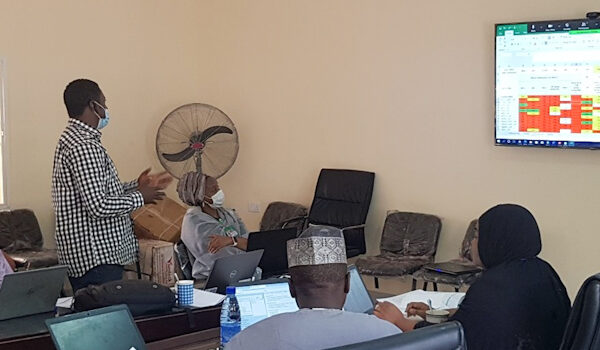
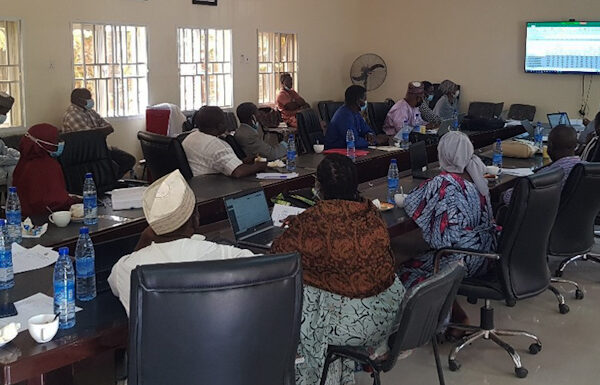
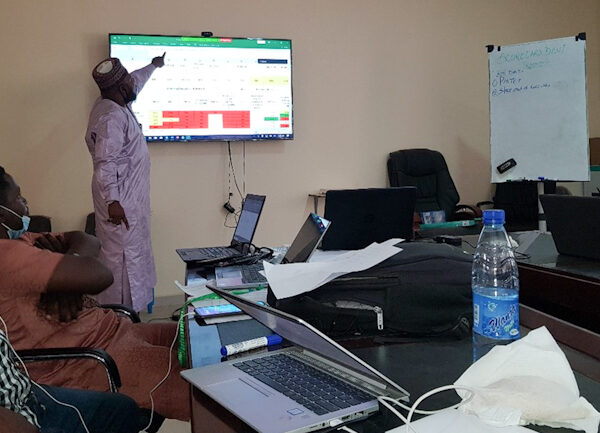
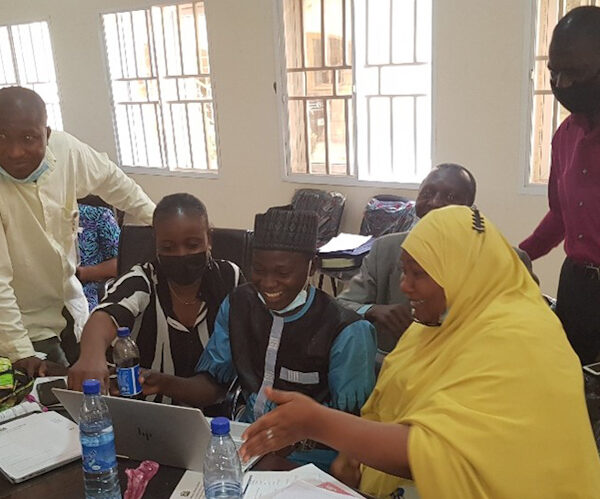
Recent News
Grants and Business Development Specialist
We are seeking a highly motivated and experienced Grants and Business Development Specialist to join our organization. The successful candidate will be responsible for identifying funding opportunities, developing grant proposals, and fostering partnerships with potential donors and stakeholders (regional and global). This role plays a vital part in securing funds and resources to support our organization’s mission and projects.
Apply NowPublic Health Consultant, Guinea
The consultant (working with the Accelerator team) will collect results from the tool, organize a meeting with stakeholders to discuss results from the tool, and produce a report on key findings and recommendations from the tool to be shared publicly.
Apply NowPublic Health Associate, Senegal
We are currently in search of an experienced Public Health professional in Senegal to work on the anticipated Nutrition Capacity Development and Financing Platform and provide technical assistance to elevate nutrition financing and strengthen local capacity to support these efforts. The Associate must be bilingual (English and French).
Apply Now
